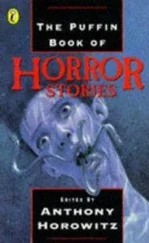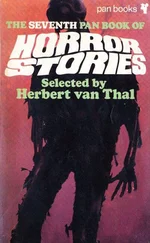‘This’ll do,’ Daniel said, leaning back into the driver’s door. Marc showed no sign of wanting to get out. He was gazing out at the clear, shining water of the nearby stream with a peculiar expression, as though the sight of it slightly annoyed him.
‘Is this where you wanted to come, Dad?’
‘I had nowhere in particular in mind.’
‘But there’s nothing here. What are we going to do?’
‘We don’t have to do anything. Just take a look around.’
Marc pulled his hat lower down his brow, said, ‘I’m thirsty,’ and hauled himself out of the car reluctantly, huffing like an old man. Daniel noted how overweight the overgrown boy still was, in spite of the health-food and vegetarian regimen his mother imposed at home. His big face was waxy, and beginning to go spotty. He was at the awkward age, changing inside and out. In less than two years he’d be a teenager, but he looked like one already, and a troubled one at that. Daniel wanted to tell him to take off the ridiculous hat, but he had only himself to blame for that, and Marc seemed proud of the thing, so he let it be.
The nearby pub looked shut. ‘A village this size is bound to have a shop that’ll sell us a can of Coke,’ Daniel stated optimistically, still feeling he had, perhaps unjustly, for selfish reasons, deprived his son of his ten-pin bowling. ‘Let’s go and find it.’
Marc grunted noncommittally, but did as he was bidden. As they ascended into the village, Daniel, who liked to think of himself as a countryman (because, thirty-seven years earlier he’d been born in a very remote part of England) was aware that he, in his sky-blue jacket and black shirt, and Marc in his baggy bad-boy town clothes and big, clumsy trainers, probably looked an odd and out-of-place pair. Not that there was anyone to pass judgment: nobody else was visible on the streets.
The village was made up of a number of large, ancient, characterful buildings linked together by clusters of small cottages and undistinguished terraces of minute nineteenth-century farm workers’ houses. These dwellings were tightly packed together: uncomfortably so, as though their inhabitants had been reluctant or unable to extend the boundaries of their community into the fields beyond. The streets were narrow, with many sharp turns. There were few people about, and they had a preoccupied, self-contained air, and hardly seemed to be aware of the two visitors as they passed.
Marc spotted a small shop down a side road, but it sold only faded arty-crafty souvenirs and dried flowers, and was shut anyway. It looked as though it had been shut for ever.
‘I wouldn’t like to live here,’ he moaned. ‘Would you, Dad?’
Daniel had to admit not. ‘But it makes a change,’ he insisted. ‘A bit of peace and quiet.’
In fact, the last remark was an understatement. The village was perfectly silent. No dogs barked, no human voices could be heard, no traffic disturbed the peace, no birds sang, and the few people they encountered moved without sound, as though they walked on shoes shod with velvet soles. The only audible noises were those made by Daniel and Marc, and they too soon grew quiet, hushed by the awesome taciturnity of their surroundings.
In the centre of the village they came upon what seemed to be a walled-off field, though it could have been an ancient village green, with what at first sight appeared to be some kind of ornate monument set in a hollow in the centre. This land, occupied in one corner by half a dozen seedy-looking sheep and their lambs, was more or less trapezium-shaped, and had a single point of entry and exit — a narrow lych-gate, like the entry to a churchyard, in the centre of the shortest of the two roughly parallel sides.
Daniel and his son emerged from the village at a point very close to the gate which, on inspection, they found to be held shut with a tightly wound chain and padlock.
‘Do you think that’s meant to keep the sheep in or us out, Marc?’
Marc missed the irony, and looked confused. Daniel smiled, and gave the gate a shove. The sound of the chain links grinding against the wooden gatepost tweaked the nerves of the sheep who raised their heads and stood still as statues for seconds, before sinking back into browsing complacency.
‘What’s that thing out there in the middle, Dad?’
‘Not sure. A war memorial for people from this place who died? That sort of thing. I can’t think what else it could be.’
‘It looks as though someone’s been throwing paint at it,’ Marc observed. The object was criss-crossed with streaks of red and green.
‘Vandals. That could be why they’ve padlocked the gate.’
‘That’s silly. It would be easy to get over the wall.’
‘Or the gate,’ Daniel agreed. A mischievous note in his voice appealed to Marc.
‘Shall we, Dad?’ he said, encouragingly.
‘Why not?’
For some time now Daniel had felt the urge to make a gesture of protest at the oppressive, silent stillness around them: to metaphorically wave two fingers at the village and its invisible or indifferent inhabitants, and it seemed to him that the padlock offered an opportunity to do something of the kind. Nevertheless, he felt rather foolish as he put his foot on one of the cross-bars of the gate and lifted his other leg over the top. He sat astride the gate for a moment, wondering if he had gone too far, but it was plain from the expression on Marc’s face that his son thought he had not gone nearly far enough. Daniel realized there was no going back, if he wanted to retain the scrap of outlaw credibility he had so easily acquired, so he dropped down to the ground on the other side of the gate, making room for the boy to follow him.
‘Lots of people come here anyway,’ Marc said.
The unmown grass in the field was inches high. Ahead of them a well-worn path, that had obviously been trodden recently by many feet, stretched towards the middle of the enclosed area.
They walked on in silence, through the intense quiet.
The field naturally inclined towards the middle from all directions but as they got nearer to the object of their excursion it became obvious that the structure, whatever it was, protruded out of the centre of a steep-sided, circular pit about thirty feet across and five feet deep.
When they reached the edge, Daniel saw there were dozens of different sets of footprints in the dust around the rim. Marc tumbled awkwardly down into the pit and moments later, feeling some small, unaccountable misgivings, Daniel followed him.
The thing itself, when they got close to it, was rather disappointing. Inside a six-foot circle of extraordinarily thick iron railings were entrapped a number of broad tree trunks that had all been severed just above head height. The railings had been there a long time because, over the years, the sides of the trees had bellied out between the constricting iron uprights in huge bark-splitting blisters that were uncomfortable to contemplate. Up out of the centre of the tight cluster of stunted trees extended what was in all probability a sculptured form representing the top half of a human being. This figure was posed with one arm stretched down, as though taking hold of the top of one of the trees to push itself upwards. Its other arm, bent, and half-raised, was held aloft in what could have been an appeal for help, or a gesture of despair, anger or even triumph. It was impossible to be quite sure if the figure was exactly human, because the whole thing was overgrown by a complex network of thorny tendrils, like briars, that concealed every inch of its surface. Two overgrown lumps on its back suggested to Daniel that it could originally have been the representation of an angel, with wings that had broken off at the base, but nothing about its posture was in any way conventionally angelic.
Читать дальше












